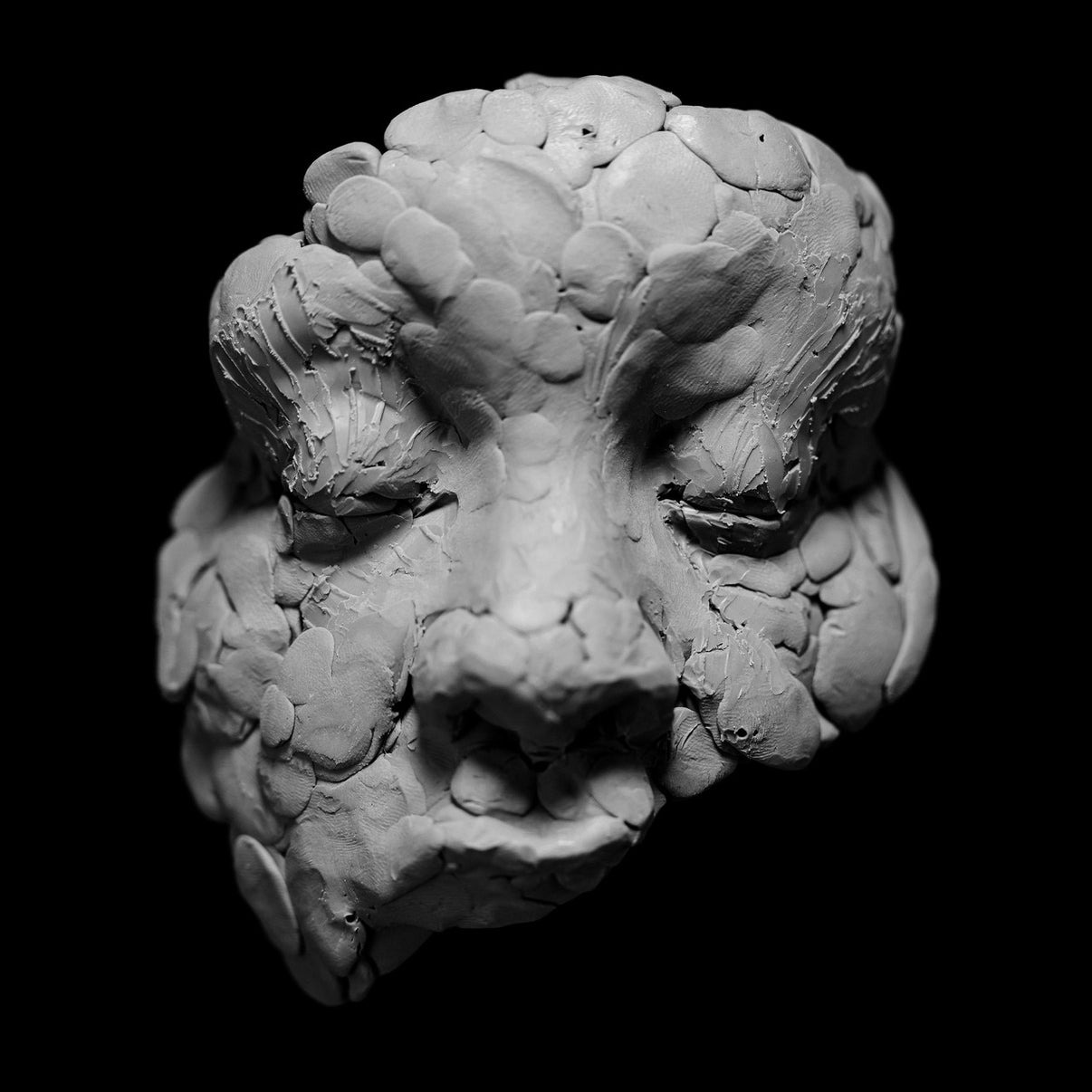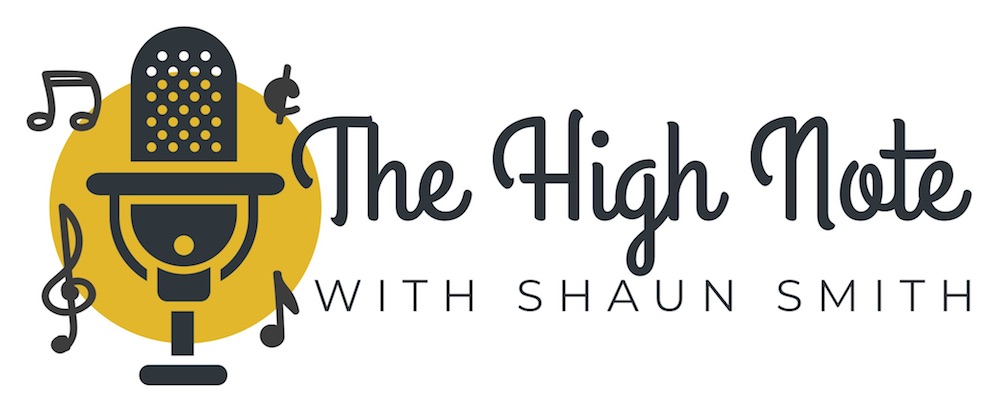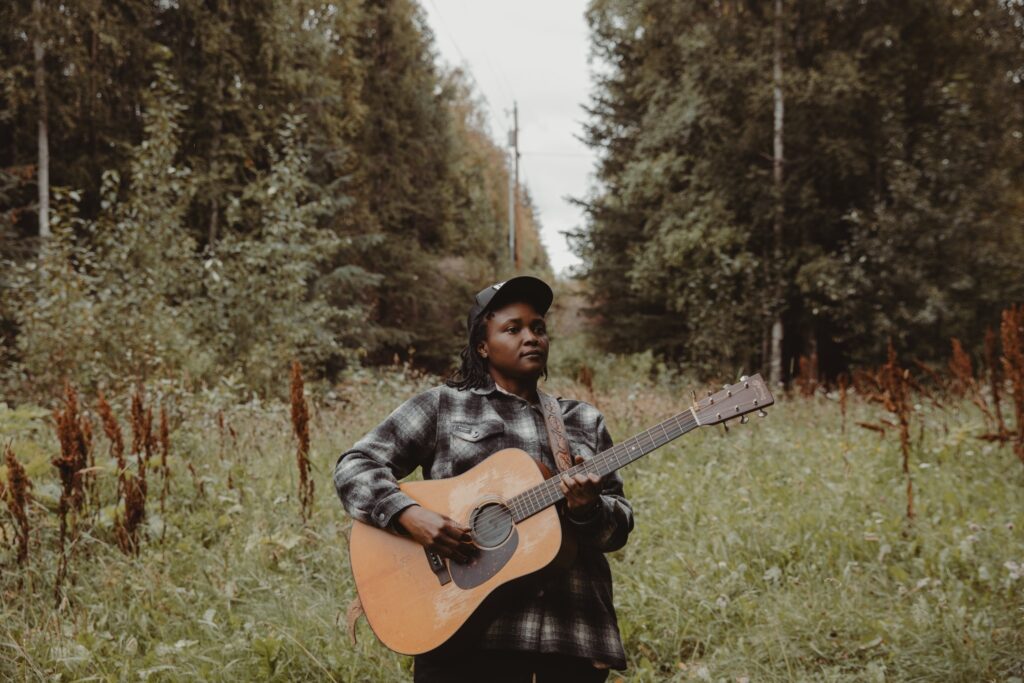The beauty and honesty on Joy Oladokun’s latest album, “Observations From A Crowded Room,” are captivating.
Solely written and produced by the 32-year-old from Casa Grande, Arizona, her fifth album mixes her signature singer-songwriter style with psychedelic electronic sounds from the perspective of a “proud queer Black woman and daughter of Nigerian immigrants.”

On the opening track, Oladokun comes from a place at the end of the road. It opens with her dubbed voice, which is nearly biblical in how she recounts the tale for the first verse and chorus. Then, on the second chorus, there’s more resilience that comes through along with some fingerpicking:
“I can change course if I want to
Find a softer place to run to
I have strugglеd all my life
I’m fucking tired of heavy living
It is timе to build a refuge
It is time to get what’s mine”
“Letter From A Blackbird” by Joy Oladokun
The combination of uplifting production and 90s rhythm and blues percussion contracts beautifully as she questions global warming and domestic violence. It’s such a positive-sounding song with such a serious message it reminds me of some of my favorite reggae songs.
I love the “Observations” scattered throughout the album—they remind me of the first time I was introduced to this concept, which was on Buju Banton’s “Inna Heights,” which I first heard only a couple of years after it was released.
But Oladokun adds some thoughtful production to these thoughts, making them resonate more.
On “Observation #1” she puts gives some context to these worldly ideas.
“I think I’m one of those people. Who’s watching the idea of progress eat my life away. And, not to be dramatic, I think that there are things that I care about,” she says. “I think I have to be strong because the ideas that I represent a “Brave New World.” But what if the world isn’t that brave or that new? Where is the safe place for someone like me?”
That’s the perfect segway to the following track, “Strong Ones,” where she searches for the courage to ask, “Where do the strong ones go?”
On “Drugs,” she takes the torch on some of the great stoner anthems and puts her personal empathic touch on it. I love her breaking the fourth wall in the intro – “Probably shouldn’t be stoned as fuck” and the outro “Smoke break!” One of my favorite parts of the song is:
“I know l’ve got to make a change
I’m not sober, I’m just over
Tryin’ to smoke away the rage.”
The intro to “Questions, Chaos, & Faith” samples a nearly extinct language borrowed from Daniel Hanson, who borrowed it from Drew Binsky’s documentary “Visiting the Tribe that Eats Humans (Papua Island).”
The song features some of my favorite flourishing production on the entire album. It showcases how Oladokun matches sound to emotion, adding an extra layer of meaning while the lyrics deal with the process of loss and grief of a friend.
“Nothing is certain, everything changes
We’re spirit and bone marching to the grave
There are no answers, there are only
Questions, chaos, and faith”
While most of the album is pretty bright and upbeat, Oladokun gets soulful and moody with the Hammond organ on “No Country.”
Brian Brown joins Oladokun on “Hollywood,” which has a deep R&B sound. This is contrasted by one of my favorite songs on the album, “Flowers.” On the latter, she leans into her singer-songwriter sound with a southern, almost country twang on the very light production. It adds a level of authenticity perfectly suited for the track and makes it shine.
God and religion are frequent themes throughout the album, but I love how she approaches them on “Dust/Divinity” with the opening line: “Do you believe in God? Quick answer.” The track also features a nice electric guitar riff that starts out as a solo but fades into the background, adding an ethereal layer to the track.
In “Good Enough,” it sounds like an older and wiser Oladokun is advising her younger self. The track is a great example of how her own production adds so much more meaning and feeling to it.
“You did the best with the cards in your hand
Weight of the world on your shoulders
I see it all with more grace looking back
Lessons you learn when you’re older.”
In an album full of honesty, Oladokun opens up the most on “Observation #3.”
“But I feel like at the end of my life, like, when I’m on my death bed, when I’m looking back on my life, I feel like I’ll be able to confidently say that so much of it was motivated by love and actual care for the world around me and hope that I could make it a different kinder place.”
On “I’d Miss The Birds,” Oladokun discusses the mixed feelings of living in the South, specifically Nashville, Tennessee. One of my favorite lines on the album is, “The Proud Boys and their women just make me feel out of place.”
Fittingly, the album ends with the soulful “Goodbye,” the piano-led closer to an epic collection of stories. “Just let it burn, it’s only goodbye,” is how “Observations From A Crowded Room” ends.
In “Observations From A Crowded Room,” Joy Oladokun can express herself through deep songwriting and expansive production that fittingly tells her story through every aspect of each song.
See Joy Oladokun Jan. 30, 2025 at Irving Plaza in New York City; Feb. 4 at Union Transfer, Philadelphia, Pennsylvania and Feb. 7 at Howard Theatre in Washington, D.C.
Get “Observations From A Crowded Room” from Joy Oladokun, Amazon, Amazon Music, Apple Music, YouTube Music, Spotify, Pandora, Tidal, Deezer and qobuz.
Favorite Tracks
Letter From A Blackbird
Am I?
Strong Ones
Drugs
Questions, Chaos, & Faith
flowers
Good Enough


